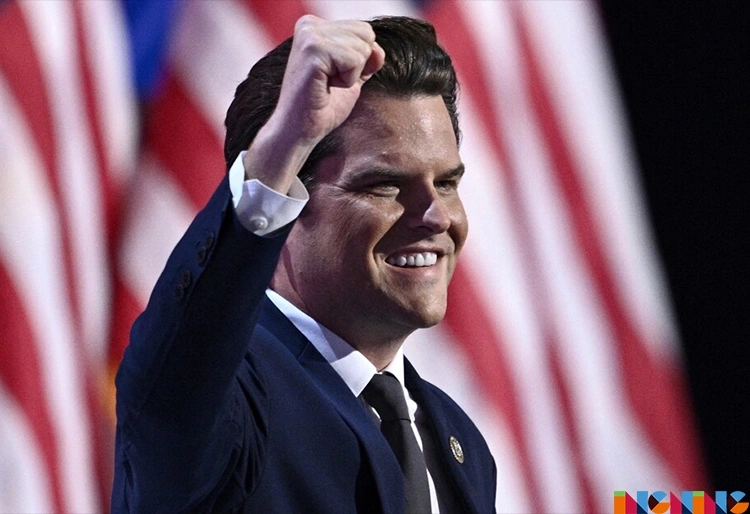Matt Gaetz’s Legislative Record and Key Policy Positions
Matt Gaetz’s Legislative Record and Key Policy Positions have made him one of the most talked-about members of the U.S. Congress. Since his election to represent Florida's 1st congressional district in 2017, Gaetz has stood out due to his outspoken approach and commitment to his principles, no matter how controversial. His legislative focus revolves around core issues like government accountability, defense spending, and criminal justice reform, all areas he considers integral to maintaining transparency and fairness in American society. This article explores Matt Gaetz’s Legislative Record and Key Policy Positions, highlighting his achievements, criticisms, and where he stands on these essential issues.
Early Career and Introduction to Congress
Born and raised in Florida, Gaetz earned his law degree before serving in the Florida House of Representatives. He quickly gained a reputation as a strong conservative, known for his staunch defense of limited government, individual rights, and a rigid interpretation of the Constitution. Upon entering Congress, Gaetz adopted a similarly bold legislative approach, prioritizing a reduction in government oversight, safeguarding civil liberties, and rethinking U.S. defense strategies. A key figure among Trump-era conservatives, Gaetz has continued to champion these themes, a trend that remains visible in Matt Gaetz’s Legislative Record and Key Policy Positions.
Government Accountability and Transparency
A primary tenet of Matt Gaetz’s Legislative Record and Key Policy Positions is his advocacy for government accountability and transparency. Gaetz argues that the federal government often operates in a manner that undermines citizens' trust, particularly through extensive bureaucracy and secretive processes. He consistently calls for reducing bureaucratic inefficiencies and maintaining government transparency, particularly within the executive branch.
Government Surveillance Reforms: Gaetz has long opposed what he perceives as government overreach in surveillance, particularly regarding American citizens. For instance, he has raised concerns about the Foreign Intelligence Surveillance Act (FISA) courts, which handle requests for surveillance on foreign intelligence targets. Gaetz argued that FISA has enabled government agencies to monitor American citizens without sufficient oversight, leading him to introduce or support measures aimed at reforming these courts. His criticism of FISA represents a significant part of Matt Gaetz’s Legislative Record and Key Policy Positions concerning government accountability.
Whistleblower Protection: Gaetz has supported whistleblower protections to allow government insiders to reveal misconduct without fear of retaliation. He believes that encouraging transparency within government institutions can help root out corruption and inefficiency. Gaetz has also voiced concerns that whistleblower protections can be selectively applied, potentially leading to a lack of accountability in certain high-profile cases.
Challenging the Deep State: Gaetz has often spoken against the so-called “deep state,” a term he uses to describe entrenched bureaucrats who, he claims, may prioritize their agendas over elected officials. His stance on this issue aligns with his calls for reining in government agencies like the FBI and CIA, which he argues need stronger oversight. In this context, Matt Gaetz’s Legislative Record and Key Policy Positions are clear: he aims to reduce the power of unelected officials and ensure transparency in federal agencies.
Defense Spending and National Security
Another core aspect of Matt Gaetz’s Legislative Record and Key Policy Positions involves his stance on defense spending. Representing a district with a strong military presence, Gaetz is known as an ardent supporter of national defense. However, he has questioned the value of excessive military expenditures, arguing that not all defense spending equates to enhanced national security.
Rethinking Military Intervention: Gaetz has been a vocal critic of U.S. military interventions abroad, especially in countries like Syria and Afghanistan. He believes that America's focus on international conflicts often detracts from its ability to defend its own borders and look after domestic issues. In 2019, Gaetz co-sponsored a bipartisan amendment aimed at limiting the president's ability to authorize military action without congressional approval. This amendment emphasized his belief in Congress's role in declaring war and avoiding unnecessary foreign entanglements.
Military Industrial Complex: Gaetz often critiques the influence of the military-industrial complex on U.S. policy decisions. He argues that private defense contractors wield significant power in Washington, often leading to inflated defense budgets that may not align with the nation’s actual defense needs. This is a controversial stance among Republicans, but Gaetz sees it as a necessary step toward ensuring that American taxpayers' money is used efficiently.
Support for Veterans: A notable part of Matt Gaetz’s Legislative Record and Key Policy Positions includes advocating for veterans. Gaetz has consistently supported legislation that aims to improve veterans' access to healthcare, mental health services, and educational benefits. He believes that resources should prioritize those who have served, and he has called for more accountability within the Department of Veterans Affairs to ensure veterans receive the care they deserve.
Cybersecurity and Domestic Defense: Gaetz’s record shows a keen interest in enhancing cybersecurity as part of a modern defense strategy. He believes that as warfare becomes more digital, the U.S. must pivot from traditional military expenditures to investments in cyber defense. Gaetz advocates for measures to protect U.S. infrastructure and prevent foreign interference in American systems, emphasizing his commitment to updating defense priorities to reflect current threats.
Criminal Justice Reform
Criminal justice reform is an area where Matt Gaetz’s Legislative Record and Key Policy Positions have shown surprising bipartisanship. Gaetz supports measures to make the criminal justice system fairer and to reduce recidivism, focusing on initiatives that address sentencing reform, marijuana legalization, and prison conditions.
Sentencing Reform: Gaetz has supported several bills aimed at reducing sentences for nonviolent offenders, particularly those convicted of drug-related offenses. He argues that long prison sentences for minor drug offenses have led to overcrowded prisons and wasted taxpayer money. He has pushed for reforms that would reduce these sentences, a stance that aligns him with some progressive criminal justice advocates.
Marijuana Legalization: Gaetz is a strong proponent of federal marijuana legalization, which he sees as essential to achieving fairer criminal justice outcomes. He argues that marijuana prohibition disproportionately impacts minority communities, and he has sponsored bills to remove cannabis from the list of controlled substances. His stance on marijuana is a distinctive part of Matt Gaetz’s Legislative Record and Key Policy Positions, marking a progressive approach to drug policy reform among conservatives.
Prison Conditions: Gaetz has also advocated for improving conditions within U.S. prisons, arguing that incarceration should focus on rehabilitation rather than punishment alone. He believes that inhumane prison conditions can increase the likelihood of recidivism and has supported measures aimed at improving access to mental health care, education, and job training programs within prisons.
Conservative Social Policies
While much of Matt Gaetz’s Legislative Record and Key Policy Positions lean toward conservative social values, he has taken a few nuanced stances that distinguish him from some of his colleagues.
Gun Rights: Gaetz is a staunch supporter of Second Amendment rights, advocating for the right of Americans to bear arms. He has opposed various gun control measures, arguing that they infringe on citizens' constitutional rights. His position on gun rights aligns him firmly with conservative voters in his district, many of whom view firearm ownership as a fundamental liberty.
Opposition to Abortion: Gaetz maintains a pro-life stance, opposing abortion except in cases where the mother’s life is in danger. His position aligns with conservative views on the issue, though it has generated significant opposition from progressive advocates for women’s reproductive rights.
LGBTQ+ Rights: Gaetz has had a mixed record on LGBTQ+ issues. While he has generally supported traditional conservative views on marriage, he has also expressed support for protections against discrimination. This mix of positions has led to varying levels of support from his constituents on this issue.
Environmental Policy and Climate Change
On environmental issues, Matt Gaetz’s Legislative Record and Key Policy Positions have at times set him apart from his party. Gaetz has acknowledged the importance of addressing environmental issues, even though he opposes heavy government intervention.
Energy Independence: Gaetz supports policies that promote U.S. energy independence through natural gas, oil, and other resources. However, he has also called for research into renewable energy sources as a way to reduce dependency on foreign oil.
Critique of Climate Alarmism: Gaetz criticizes what he describes as “climate alarmism” in government, believing that environmental policies should balance economic impacts with ecological preservation. He advocates for policies that prioritize economic growth while addressing environmental issues through innovation rather than heavy-handed regulations.
Support for National Parks: Gaetz has supported funding for national parks and conservation efforts, showing a willingness to protect natural resources. This has been an area where he has collaborated with both parties, demonstrating a commitment to preserving American landscapes.
Conclusion
Matt Gaetz’s Legislative Record and Key Policy Positions reflect his commitment to limited government, military reformation, criminal justice reform, and conservative social values. As he navigates a complex political landscape, Gaetz has earned both admiration and criticism for his unyielding stance on various issues. His legislative record continues to evolve as he advocates for government accountability, efficient defense spending, and a fairer justice system. Whether his positions gain further traction or face heightened opposition, Gaetz’s influence on American policy and politics is likely to remain significant.









 Ingning
Ingning







